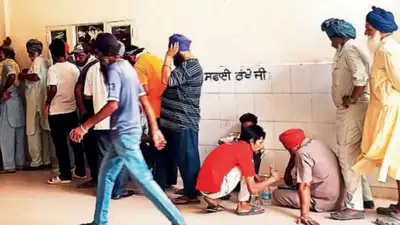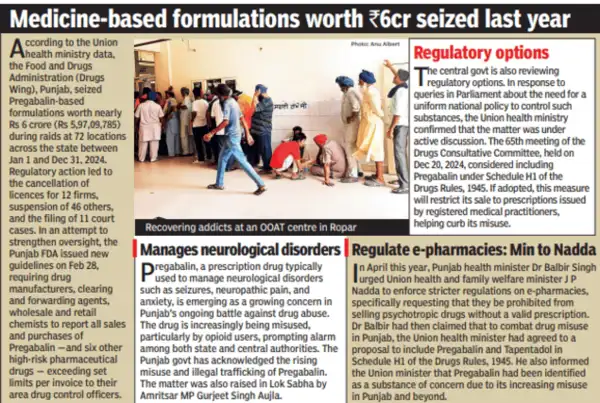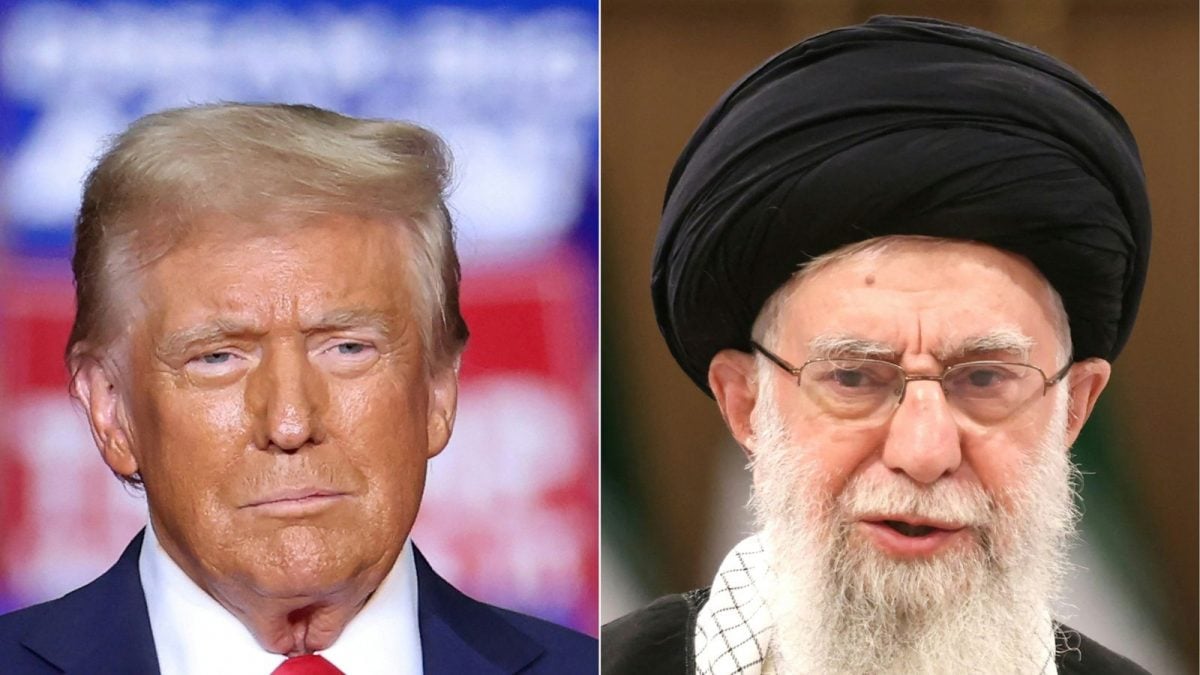ARTICLE AD BOX

ROPAR: Delays and overcrowding at the Outpatient Opioid Assisted Treatment (OOAT) centre in Ropar have sparked serious concerns. Drug smugglers are reportedly exploiting the chaos to openly sell banned drugs to recovering addicts.

Notably, a pilot project for digitised patient registration is underway at the centre.According to on-ground investigations by TOI, patients queued up for hours to get medicines, with some often returning empty-handed due to delayed registrations. The resulting frustration has created a vacuum that smugglers are filling with illegal sales of high-dose 'Pregabalin' capsules - a medicine often misused by addicts despite its sale being prohibited without a prescription."Although Pregabalin is yet to be covered under the Narcotic Drugs and Psychotropic Substances (NDPS) Act, its usage has been restricted, especially the high dosage, and it cannot be given without a doctor's prescription. It falls under the category of 'sedative'. We will get the matter checked and take appropriate action against anyone involved in this," said Gulneet Singh Khurana, SSP, Ropar."The recovering addicts, failing to get medicines, can take an overdose of Pregabalin to get immediate relief from pains.
The patient can also get addicted to Pregabalin. Only buprenorphine is the appropriate drug to treat the addicted patients under the supervision of a doctor. Consumption of such drugs without medical guidance can prove dangerous for recovering addicts who may become addicted to it," said a Ropar psychiatrist.Outside the Ropar OOAT centre, smugglers were found selling 300 mg Pregabalin capsules for Rs 200 to Rs 300 per strip of 10.
When approached by this TOI reporter as a decoy customer, one smuggler said: "I only have two strips left as all others have been sold out. Each costs Rs 250. If you want both these strips, I'll give you each for Rs 230." However, the final deal was struck for Rs 200 per strip.A recovering addict in the queue shared his ordeal while assuming TOI reporter to be just another patient. "I have been standing for hours, but my turn still hasn't come.
A day before yesterday, I returned empty-handed as the window closed before I could register," he said.Health officials fear the situation could snowball into a major crisis if immediate steps were not taken. They are now urging the simplification of the digital portal and the deployment of more human resource to manage patient inflow."In Punjab, Pregabalin was once commonly used by veterinarians to treat horses for nerve pain.
Its popularity among addicts, who call it 'Ghode Wale Capsules' (capsules for horses), stems from its intense psychoactive effects. Despite its medical use for nerve pain, epilepsy, anxiety disorders, and opioid withdrawal, the misuse of Pregabalin, particularly the 150mg and 300mg doses, has escalated in Punjab. These formulations are widely known among addicts by the street name 'Signature', referring to a popular brand," said a doctor.In Sept last year, all district magistrates in Punjab banned the sale and stocking of Pregabalin above 75mg to tackle its misuse, and the crackdown targeted wholesalers, medical shops, and even hospital pharmacies. Following this, Punjab DGP Gaurav Yadav directed district police chiefs to enforce the ban strictly and conduct regular inspections. However, without a legal classification under the NDPS Act, enforcement remains a challenge.



.png)
.png)
.png)
















 4 hours ago
5
4 hours ago
5









 English (US) ·
English (US) ·